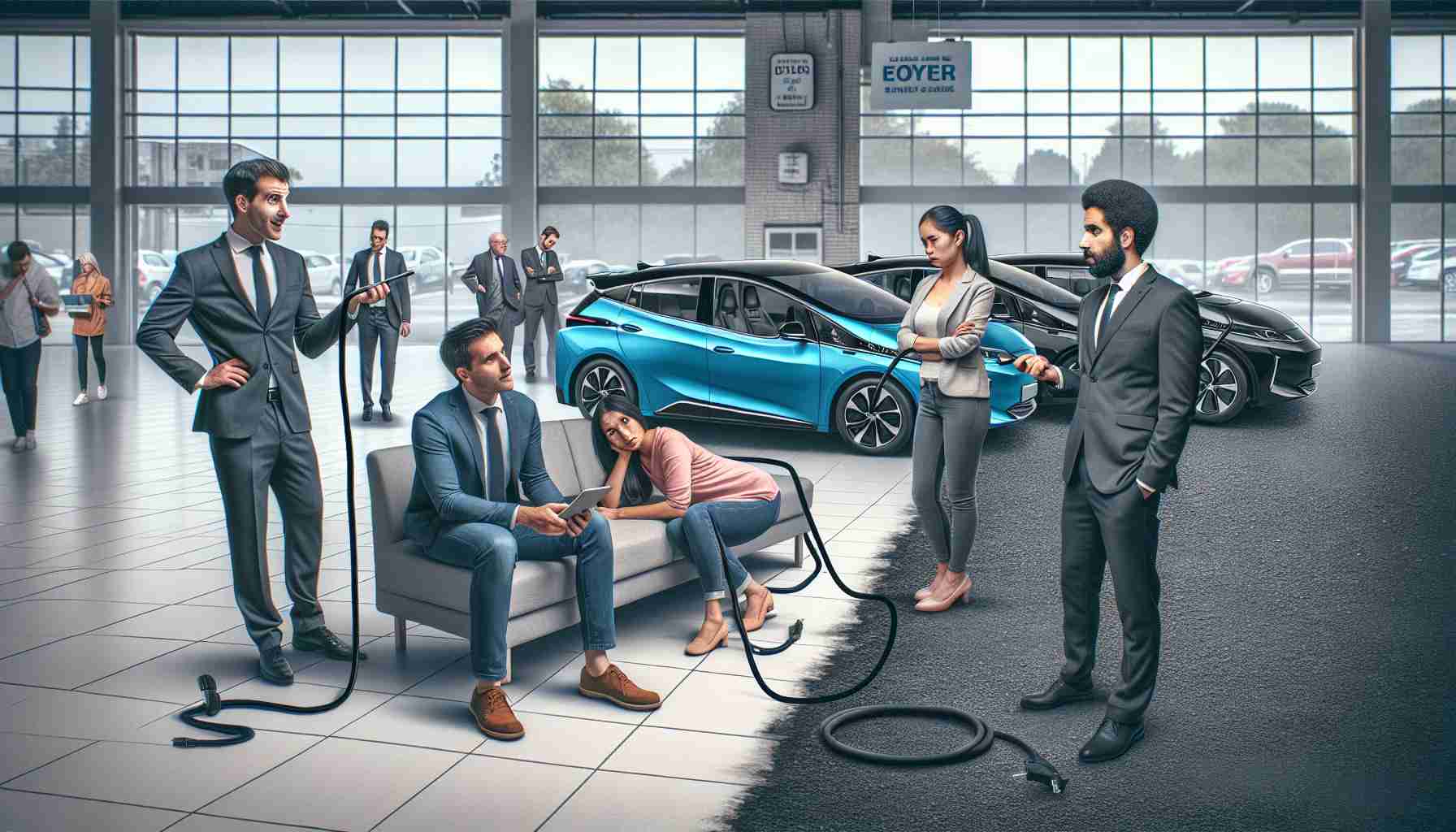Dealerships across the United States are facing difficulties when it comes to adapting to the new process of applying the electric vehicle (EV) tax credit at the time of sale. The recent change, which took effect earlier this year, allows consumers to benefit from lower out-of-pocket costs for EVs, with the aim of promoting wider EV adoption.
However, dealerships have encountered challenges with the new system. Although they can register for the IRS Energy Credits Online portal to claim or transfer the tax credits, some dealerships have experienced technical issues that prevent them from applying the credits at the time of sale. Even within the same dealership group, there have been inconsistencies in the ability to utilize the tax credits.
The implementation of the new process has been met with frustration by dealerships. Andrew Tang, the operations manager at California-based My Auto Group, expressed their difficulties, stating, “It’s like we’re dead in the water.” Despite working closely with officials for over two months, the issues persist, hindering the process for consumers and causing dealerships to lose potential customers to local competitors.
Despite these challenges, the EV tax credit program has proven to be effective. In the first 36 days of 2024 alone, the U.S. government issued $135 million in advanced credits to dealerships. However, it is important to note that the new process is still in its early stages, and both dealerships and consumers may continue to encounter teething problems.
CATL’s Restructuring Efforts to Secure EV Tax Credit Benefits
The electric vehicle tax credit program poses multifaceted challenges, not only for dealerships but also for battery manufacturers like CATL. As protectionist-style regulations complicate the eligibility criteria for the tax credits, CATL is seeking to restructure its operations to obtain benefits through battery supply partnerships with original equipment manufacturers (OEMs).
CATL, founded in 2011, has become one of the leading battery manufacturers for electrified vehicles. However, the Inflation Reduction Act imposes restrictions on the tax credit eligibility of batteries manufactured or assembled by entities classified as Foreign Entities of Concern (FEOC). China is categorized as a covered nation, and the act prohibits the inclusion of critical materials sourced from FEOCs from 2025 onwards.
To avoid running afoul of these regulations, CATL, with its ties to the Chinese government, is undergoing restructuring. Founders Robin Zeng Yuqun and Li Peng currently hold a significant stake in the company, but an agreement that combines their shares is being dissolved. This change will reduce Robin Zeng Yuqun’s ownership below the threshold that designates CATL as a FEOC, potentially paving the way for increased market presence in the United States.
CATL’s avoidance of the FEOC designation will likely strengthen its collaboration with automakers like Ford, which plans to establish a multi-billion-dollar battery plant in Michigan. By licensing CATL’s technology and producing batteries domestically, Ford can avoid importing them from overseas, contributing to the growth of the domestic EV industry.
FAQs:
1. What difficulties are dealerships in the United States facing regarding the electric vehicle (EV) tax credit?
Dealerships are facing challenges in adapting to the new process of applying the EV tax credit at the time of sale. Some dealerships have experienced technical issues that prevent them from applying the credits, resulting in inconsistencies in the ability to utilize the tax credits.
2. How can dealerships claim or transfer the EV tax credits?
Dealerships can register for the IRS Energy Credits Online portal to claim or transfer the tax credits.
3. Why are dealerships frustrated with the new process?
Dealerships are frustrated because the technical issues with applying the tax credits at the time of sale are persisting, hindering the process for consumers and causing them to lose potential customers to competitors.
4. Has the EV tax credit program been effective?
Yes, the EV tax credit program has been effective. In the first 36 days of 2024, the U.S. government issued $135 million in advanced credits to dealerships.
5. What challenges does the electric vehicle tax credit program pose for battery manufacturers like CATL?
The electric vehicle tax credit program poses challenges for battery manufacturers like CATL. Protectionist-style regulations complicate the eligibility criteria for the tax credits, particularly for batteries manufactured or assembled by entities classified as Foreign Entities of Concern (FEOC).
Definitions:
– EV: Electric Vehicle
– Tax credit: A reduction in taxes owed by an individual or business as a result of certain activities or expenditures.
– Dealerships: Businesses that sell new or used vehicles to consumers.
Suggested related links:
– IRS
– Ford
The source of the article is from the blog krama.net
